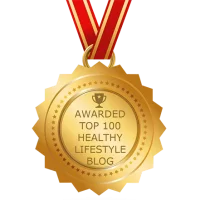Don’t let these seemingly healthy foods mislead you.
Clearly we are not fooled by all the sugar, bad fats, additives, and preservatives in obvious junk food items such as cookies, cakes, ice cream, potato chips, and candies. But what about your “healthy” granola bars, fruit and nut bars, trail mix, fat-free yogurts, fruit smoothies, sports drinks, and diet sodas? There are a number of foods that claim to be healthy or good options for you that sadly aren’t so healthy. Many foods can easily fool us to thinking we are making a better and healthier choice when in reality we’re not.
It happens to all of us, we see a product labeled as “all-natural” and we think it should be good for us. However, the FDA does not regulate what can and cannot be labeled as natural. For example, many granola bars are often seen as a healthy snack or meal replacement particularly when labeled “natural” or when we can actually see and recognize the fruit pieces or nuts that it contains, but in reality most processed bars are still considered junk foods especially when they contain significant amounts of sugar. If you are looking for a healthy crunchy snack, try some raw nuts instead; they are high in healthy fats, vitamins, minerals, and antioxidants.
Another mischievous, believed to be healthy meal replacements that are not entirely good for you are smoothies. When prepared at home there is no doubt you can make a healthy nutritious mix by pureeing only fruits and veggies, but when purchased at the store or at a restaurant smoothies are often overloaded with sugar. Don’t be fooled by pre-made smoothies’ healthy reputation. Most smoothies you purchase at restaurants will contain concentrated fruit juice, high fat milk, or even ice cream as a base which leads to added sugar and calories. You are better off grabbing some real fresh fruit instead or making your own smoothie at home. When preparing smoothies at home, use water to make green smoothies by blending veggies with added fresh fruits for sweetness or try using Greek-style yogurt as a base. Just 6 ounces of Greek yogurt has 0g fat and 18g protein which will help keep you full, plus it contains probiotics and less sugar than other yogurts.
Lastly, let’s take a look at our low-calorie and zero-calorie drinks such as sports drinks and diet sodas. Yes, you have made the smart choice in cutting back on the calories you drink because most people are not aware of all the calories beverages can contribute to their daily intake. However, all of these beverages still contain added sugars and salts. You might ask, but what about “sugar-free” labeled diet sodas and other beverages? Well, sugar-free does not mean healthy, in fact the fake sweetness and sugar alcohols may be more problematic to our health and can lead to weight gain. And what about sports drinks? Several people as influenced by the media may claim that a trip to the gym or breaking a sweat warrants a sports drink, but the truth is that your electrolyte and glycogen reserves are not depleted until more than an hour of intensive training, which honestly most of us do not engage in. After a workout you should really just be replenishing with water and some type of protein meal or snack 30 minutes to an hour after exercise. Make better beverage choices and stick to drinking more water, make water more exciting by adding slices of lemon, lime, mint leaves, or cucumber.
The lesson to be learned is always read your nutrition label! Just because a product is labeled “all-natural” or “healthy” does not mean it’s good for you. Make sure to cut back on sugar, bad fats (saturated fats and trans fat), and look at the calories per serving size.
References:
Happy April Fools’ Day: 12 ‘Health’ Foods Fooling Us All. Huffpost Healthy Living. https://www.huffpost.com/entry/april-fools-day-healthy-foods_n_2980863




